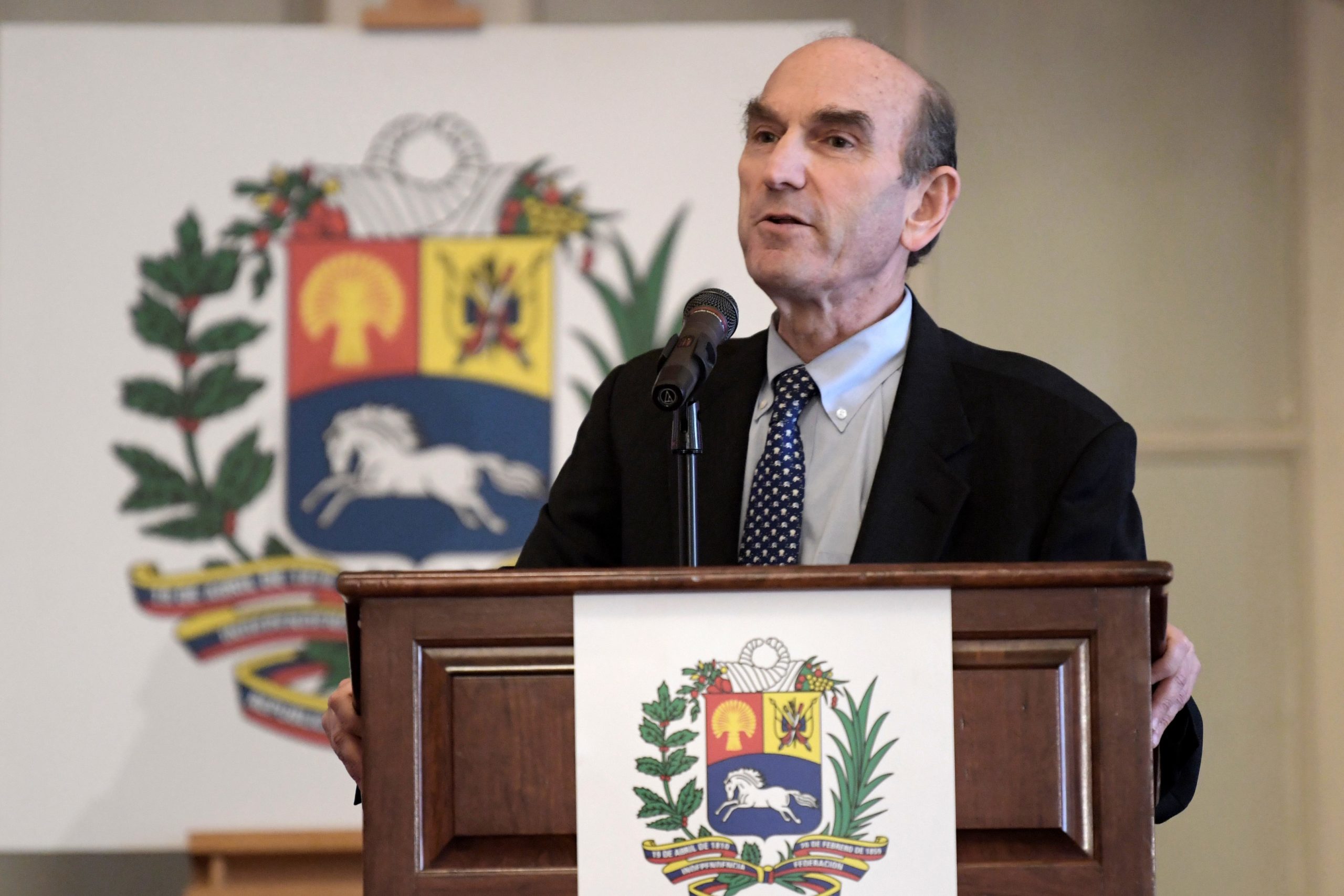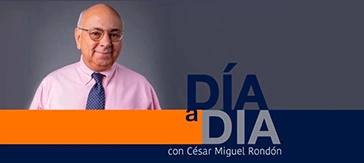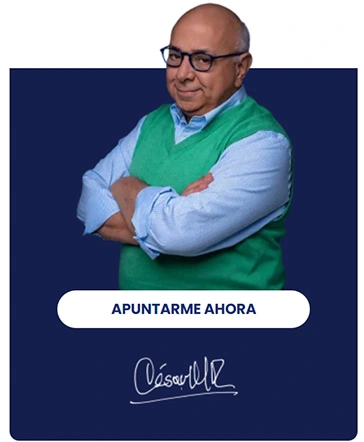Why did the US effort to promote democracy in Venezuela fail? The lessons learned there should inform democracy promotion efforts around the globe.
Publicado en: Council on Foreign Relations
Por: Elliott Abrams
From January 2019 through the end of the Trump administration, the United States imposed pervasive sanctions on the Venezuelan economy and conducted a vast diplomatic campaign against the Maduro regime there. Many elements of that policy have been maintained by the Biden administration. Yet the policy failed to dislodge Maduro or to improve the human rights situation in Venezuela, much less return that country to democracy.
Why did it fail? The answers could shed light not only on Venezuela but on conditions and policies elsewhere as well. Here are ten brief answers that help explain the policy failure and that policymakers and human rights advocates should keep in mind when addressing other countries and regimes.
-
-
- Outside support can allow even a weak or unpopular regime to survive. The United States achieved considerable success in bolstering efforts to end military rule in Latin America in the 1980s, but those regimes had very little outside support. The Maduro regime has received intelligence assistance from Cuba, Russia, China, and Iran, diplomatic support from other autocracies as well as from some Western Hemisphere democracies, and has gotten massive loans from Russia and China. So the regime does not feel isolated and the impact of both international criticism and economic sanctions is weakened.
- Broad economic sanctions that do not directly affect the ruling elites will not change their conduct. The United States imposed broad sanctions on Venezuelan exports but Venezuela’s rulers were still able to move freely throughout Latin America and Europe—and move their money freely as well. In many cases their families lived abroad in splendor on the ill-gotten gains. Sanctions must directly hit the civilian and military officials who run the regime to have maximum impact.
- The population at large must see clearly how it will benefit from political change. The Venezuelan opposition was never able to show citizens that removing the regime would lead to greater prosperity for the country. Polls showed that voters blamed the regime far more than U.S. sanctions for the country’s economic collapse, but that did not mean they believed the opposition could bring better days. Here the United States and other supportive democracies failed. The U.S. State and Treasury Departments had detailed economic plans that would have given cash to every Venezuelan family and jump-started the economy. The plans were never publicized — a missed opportunity to reinforce the regime’s culpability for the country’s extreme poverty.
- Regime leaders must see a way out in which they can survive, or they will reject change. Regime leaders must feel pain now, through economic sanctions and travel bans, but must see some way to survive after regime change. If they feel that change means long prison terms and penury, they will fight to the death to resist. In Venezuela, neither the United States nor the opposition spoke convincingly enough about amnesties or forms of transitional justice that would allow regime officials to envision a future for themselves in post-Maduro Venezuela.
- Military leaders must see a future both for themselves and for their institution. Despite some efforts by both the United States and the Venezuelan opposition, the military was never persuaded that in a post-Maduro period they would have an important, protected, and honored role. Because they hold the guns, military leaders can prolong or shorten a regime’s period in power, and can press for hard lines or compromise in any negotiations. In Venezuela as in many other cases, the nation needs a capable military when it returns to democracy, and plans for maintaining the institution’s national role should be made very clear.
- Democratic nations must be united in their approach, or the regime will use divisions to weaken the opposition. While there was considerable cooperation among democracies backing the Venezuelan opposition, at key moments a lack of cohesion helped the regime. The EU High Representative worked at cross purposes with the United States at times, pursuing a different path and working with opposition leaders who were not part of the main opposition group. Every such difference is a boon to the regime, allowing it to further divide the opposition and create confusion.
- The United States and other democracies were unable to protect democratic leaders in Venezuela. Opposition leaders faced beatings, exile, and prison. The nations supporting a return to democracy did not do enough to protect them and their families. In some cases, families of political prisoners needed financial support while they were jailed, and the prisoners needed much more concentrated international pressure to secure their release. In other cases, opposition activists needed visas so they could escape prison and escape Venezuela. These men and women were on the front line, and no democratic movement can succeed if they are unable to keep up the fight. Much more must be done, in dozens of authoritarian countries, to help them.
- The United States and other democracies should support negotiations with the regime if the democratic opposition wants them. In Venezuela in 2019, internal differences in the Trump administration meant we stood aside (and intermittently criticized) the Norwegian-led negotiations. This weakened the opposition’s opportunity to use the talks for its own goals, including partial agreements that might have freed political prisoners or permitted some exiles to return. When lifting U.S. economic sanctions is a regime goal, an American failure to participate in or in some way support negotiations undermines the opposition– because it reduces the regime’s incentive to negotiate real compromises.
- Serious support for the opposition should include financial support, but the opposition is weakened if it becomes a bureaucracy and is less dependent on winning public support. In a case like Venezuela, the regime dominates the economy and the public sphere, and depriving the opposition parties, NGOs, and civil society groups of money is a key regime goal. The United States and other democracies should help them survive, through democracy-support programs that many countries now maintain. But there is a danger that they become dependent on outside support rather than building greater domestic backing, and a danger that opposition organizations become bureaucratized when they should be nimble political forces dedicated to winning the public’s backing. Outside supporters of democracy must work hard to maintain a proper balance.
- Threats of military action can unsettle regime supporters, but they can also weaken the opposition. The United States repeatedly said, “all options are on the table” with respect to military action against the Maduro regime, and in principle they were. The repetition of the threat was intended to unsettle regime supporters and make them think twice about whether the regime would survive. References to the U.S. interventions in Panama and Grenada were meant to show that democracy would prevail and the regime would, in the end, be ousted one way or another. But such statements can also give false hope to citizens that they need not fight the regime because a deus ex machina ending will resolve the country’s problems. If there is no intention ever to use military force, the threats should never be made.
-
Even if the United States had done better in all these ways, the Maduro regime might successfully have clung to power. At its core, the regime is not a military dictatorship, rather, it is a criminal enterprise, whose elites are closely linked to drug trafficking and other illicit activities. Those regime leaders fear that any political change will mean that they have to pay for their crimes, and they will resist. But the chances of success in restoring democracy will certainly be higher anywhere if these lessons are kept in mind.












